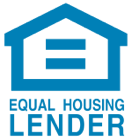Home Equity Line of Credit (also known as a HELOC)
Pull cash from the equity in your home
Competitive interest rates
1st Lien & 2nd Lien HELOC options available

fund your goals
Unlock your home's hidden potential: use a Home Equity Line of Credit (HELOC) for home improvements, debt consolidation, education expenses, medical bills, business ventures, emergency funds, and more!
SIMPLY CALL 800-892-8846 TO GET STARTED
Why choose mph.bank for a Home equity line of credit (heloc)?
Experienced Professionals
Our team of experienced mortgage experts will guide you through the process and help you make the right decision for your financial situation.
 Competitive Rates
Competitive Rates
We offer competitive interest rates to ensure that you get the most out of your home’s equity.
 Excellent Customer Support
Excellent Customer Support
We are committed to providing outstanding customer service and support throughout your HELOC journey.
"We have the expertise that will help you access the equity in your home for your financial needs." - Laura Gray, Loan Adviser
mph.bank home equity line of credit (HELOC) faqs
Q: What can a Home Equity Line of Credit be used for?
A: HELOCs are often used for major expenses like home improvements, debt consolidation, purchasing a new property, education, investments, or unexpected expenses.
Q: What is the difference between a first-lien Home Equity Line of Credit (HELOC) and a second-lien Home Equity Line of Credit (HELOC)?
A: A First Lien Home Equity Line of Credit (HELOC), also known as a primary HELOC, is a revolving line of credit that allows you to borrow against the equity in your home. It’s often used for major expenses like home renovations, debt consolidation, or even purchasing a new property.
A Second Lien Home Equity Line of Credit (HELOC), also known as a subordinate HELOC, is a second mortgage that allows you to tap into your home’s equity while maintaining your existing first mortgage. This is a great option if you want to access additional funds for purposes like education, investments, or unexpected expenses.
Q: How fast can I get my home Equity Line of Credit (HELOC)?
Your Responsiveness:
- How quickly you gather and submit the required documents can significantly impact the processing time.
- Be prepared with documents like pay stubs, tax returns, bank statements, and proof of homeowner's insurance.
Complexity of Your Application:
- If your financial situation is straightforward, approval can be quicker.
- Complexities like self-employment income or recent credit issues might require more scrutiny and delay the process.
Here's a breakdown of the potential steps involved:
- Application: This takes about 30 minutes.
- Verification: The lender verifies your income, employment, and assets (1-2 weeks).
- Appraisal: Depending on your lender and equity, an appraisal might be needed (1-2 weeks).
- Underwriting: The lender assesses your risk and approves/denies your application (1-2 weeks).
- Closing: Signing documents and funding the HELOC (1-2 days).
Tips for Expediting the Process:
- Gather all required documents beforehand.
- Respond promptly to lender requests for information.
Q: How much can I borrow with a Home Equity Line of Credit (HELOC)?
Here's an example to illustrate:
Imagine your home is appraised at $300,000 and you still owe $200,000 on your mortgage. With a maximum CLTV of 85%, you could potentially borrow up to:
($300,000 * 85%) - $200,000 = $85,000
However, it's important to remember that this is just an example. Lenders will consider your financial situation, including your credit score, income, debt-to-income ratio, and employment history, before determining how much you're eligible to borrow.
Here are some other factors that can affect how much you can borrow with a HELOC:
- The type of property you're using as collateral: Typically, you can borrow more against single-family homes than condos or investment properties.
- Your location: HELOC limits can vary depending on local housing market conditions.
Here are some additional tips for maximizing your HELOC borrowing potential:
- Improve your credit score: A higher credit score can qualify you for a lower interest rate and a higher borrowing limit.
- Pay down debt: Reducing your debt-to-income ratio can make you a more attractive borrower to lenders.
- Increase your home's value: Making improvements to your home can increase its appraised value and potentially allow you to borrow more.
Q: What are the interest rates on a Home Equity Line of Credit (HELOC)?
- Your credit score: Generally, borrowers with higher credit scores will qualify for lower interest rates.
- The current market rate: HELOC interest rates are typically tied to the prime rate. As the prime rate goes up, so will HELOC rates.
- The loan-to-value ratio (LTV): This is the amount you borrow compared to the value of your home. The higher the LTV, the higher the interest rate you will likely be charged.









